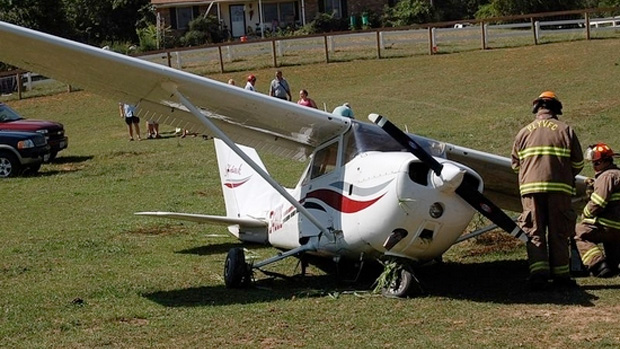Let’s Talk About Death
“…in this world nothing can be said to be certain, except death and taxes.” Benjamin Franklin (1789)
It has happened so many times since I began flight lessons. A conversation about flying small airplanes yields a comment from a non-aviator about the lethal risks of flying.
“Those crash all the time!”
“Aren’t you afraid of crashing?”
“Did you hear about that plane that crashed?”
First, not all crashes result in the death of the pilot and passengers.
NTSB reports that in 2012 US general aviation had 1,471 accidents of which 271 resulted in a fatality. In other numbers, in 18% of small airplane crashes, someone dies.
My glass is half-full: I have an 82% chance of surviving a crash, statistically speaking.
 |
| Cessna Carrying 3 Crash-Lands on Farm, No One Injured |
 |
| Tab 10 |
In fact, death happens every single day to millions of people around the world for a huge variety of reasons:
|
Now, I have a very in-the-moment perspective on life. I don’t dwell in the past carrying burdens, and I don’t think too far into the future stressing about what-ifs. For better or worse, I’m right here right now taking in this exact moment.
Living in the moment means I live like every day could be my last for any of the above reasons. I’m not spending all my cash and doing crazy stuff every day like it’s literally my last day on Earth. Instead, I’m taking in what’s going on around me, enjoying the good moments, thankful every day that I’m here and focusing on what’s really important: family, friends, good food, security in life and creature comforts.
Flying airplanes, for me, is part of the package to happiness. I get excited before each flight, I grin on my way up (and usually down), and I love sharing my stories with people who don’t see the world from a few thousand feet up. My brain’s reward center is full of pleasure before, during and after each flight.
All this unicorn talk has made me forget about the reason for this post. Back to death!
People do crash and sometimes these accidents are lethal. I read NTSB reports each month which include accidents from all aircraft types and sizes, all pilot experience levels, and result in fatalities ranging from none to all.
I have a very realistic approach to the risks of flying. I am fully aware that a number of things could go wrong: engine failure, in-air collision, pilot error, terrible landing, etc.
Despite knowing that flying can be dangerous, I insist to live my life to its fullest. I want to enjoy my time on Earth, not live in fear of it. I want to drink premium coffee, sip quality wine, eat delicious foods, and enjoy the view from aloft. This doesn’t mean I’m reckless about the matter either.
I recommend having a will for all pilots- especially pilots with families. Rusty and I have a will drawn up that designates who will take custody of our children and where estate funds will go. It’s also a good idea to prepare the spouse for early departure. Things like monthly bills, accounts, and passwords maintained by one person needs to be shared so the other can take care of business to keep the lights on. Having a friend support base is important too. In the event one or both of us goes, having friends to help cope with loss can relieve some of the feelings of depression. Talking about what to do with your remains is important too. I’m all for organ donation and I want my surviving family to decide on burial or cremation. (I don’t believe it should be my choice when I’m not grieving for me.)
With death contingency planning done, the next best thing to do is to always be prepared. That means to continually learn about flight safety topics, practice flight maneuvers, practice emergency landings, give safety briefings to passengers, and take a cautious approach to flying.
“Those crash all the time!” No they don’t and accident rates are on the decline.
“Aren’t you afraid of crashing?” Nope. I’m more afraid of drunk drivers and random acts of violence.
“Did you hear about that plane that crashed?” I did- and here’s what I learned about it…
Thursday, November 07, 2013 | | 0 Comments
Subscribe to:
Posts (Atom)

